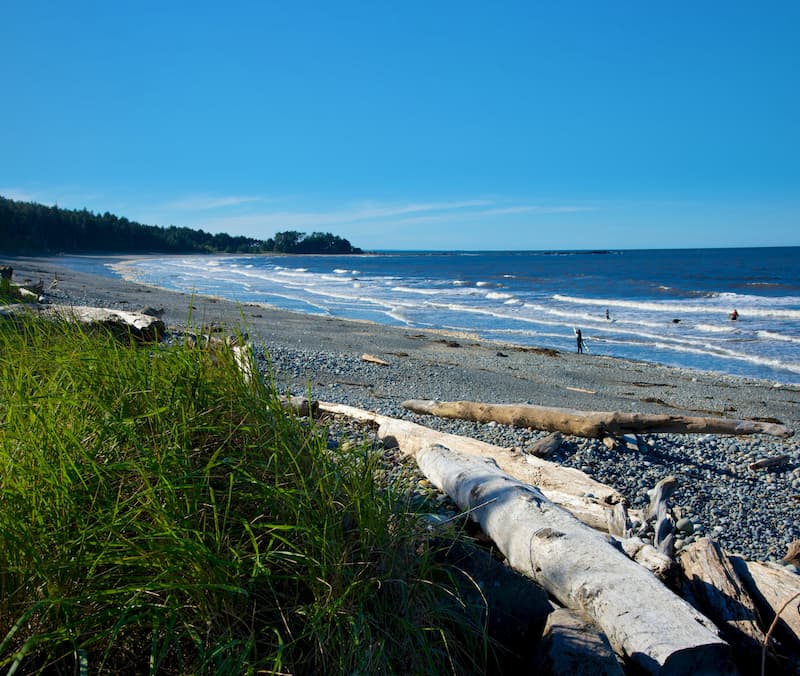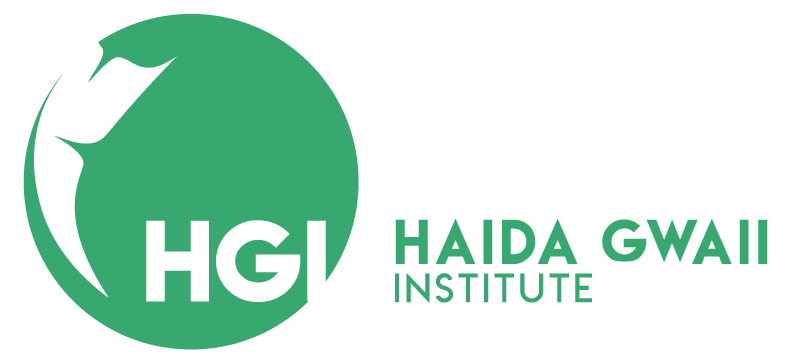Community
Resilience
Haida Gwaii Semester in Community Resilience
January to April, HlG̱aagilda Skidegate
This program is designed for students from interdisciplinary backgrounds who have completed the first two years of an undergraduate degree. With its roots in complex adaptive systems theory, resilience includes the ability to: persist in the face of challenges, adapt to changing circumstances and new realities, or transform to fundamentally new paths for development. Using a transdisciplinary, cross-cultural approach, this program explores the intertwined nature of people, place, and environment from the perspective of resilience theory drawing on Indigenous science and ways of knowing, and Western science and ways of knowing. The courses introduce the theory of resilience as it can be applied to cross-cultural community settings, using case studies from communities on Haida Gwaii and other exceptional cases.

HGSE 370 - Introduction to Resilience Theory in Community
This introductory course of the Community Resilience Semester is intended to introduce students to foundations of resilience theory and provide a framework/lens in which to approach the subsequent courses of the semester. The course explores the theory of social-ecological resilience as applied to cross-cultural community settings. Resilience will be examined across different scales from individuals, households, communities, and beyond; but the focus in this course will be community; and as such a resilience analysis will require an understanding of the historical evolution of a social-ecological system.
HGSE 371 - Re-storying History: Indigenous Perspectives
This course explores the diversity of Indigenous peoples of British Columbia and Canada and the unique histories, beginning with origin stories and oral histories and moving on to the histories and relationships that Indigenous groups have with the federal, provincial, and territorial governments.
HGSE 372 - Language and Cultural Continuity
This course explores language as a means of looking at culture and cultural continuity. Students will explore how cultural knowledge, values and worldviews are embedded in language and other forms of communication and expression, as well as methods of knowledge translation and transmission. Using Xaad Kil - the Haida language - as a framing device, students will examine the integral connections between language, culture, history, land and resilience.
HGSE 381 - Ecological Economics
The emerging discipline of ecological economics has been influenced by the intersection of political, economic and ecological systems. This course will be divided into two parts: the first part will look at the underlying philosophy and principles of ecological economics and the basic concepts of ecological economics such as economic low-growth, ecosystem services, valuation of nature. The course explores current measures of ‘progress’, comparing conventional measures (of wealth and growth) with those that incorporate environmental components, and we will discuss their usefulness – both conceptually as well as in various policy settings, including Haida Gwaii. The second part's focus will shift to the implications of a radical reorientation of a political economy. Drawing on lessons learned, students will look at cascading effects of change, unintended consequences of change, and why it might be difficult to separate our ecological goals from our political realities.
HGSE 373 - Community Planning and Development for Resilience Seminar
Community resilience is influenced by proactive community members, planning and development processes, community problem solving and active leadership to strengthen community cohesion around a common vision. This course examines the challenges and opportunities of developing and diversifying resilient resource dependent cross-cultural, rural communities using case studies with a focus on Haida Gwaii’s comprehensive community planning process. This course meets once a week on Friday throughout the semester program.
